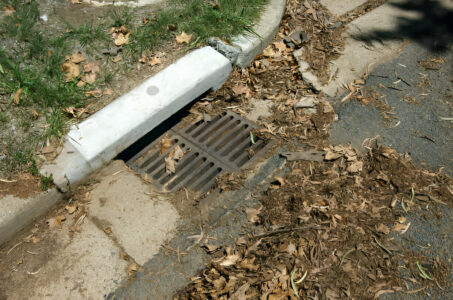Blocked drains are a common household issue that can cause significant inconvenience and damage if not addressed promptly. Keeping your drains clear is crucial for maintaining a healthy and functional plumbing system. In this article, we’ll explore various methods to clear blocked drains, tools you’ll need, preventative measures, and when to call in the professionals.
Understanding How to Clear Blocked Drains
Signs of a Blocked Drain
One of the first signs of a blocked drain is slow drainage. If you notice water pooling in your sinks, bathtubs, or showers, it’s a clear indicator of a blockage. Unpleasant odors emanating from drains and gurgling sounds can also signal a problem.
Different Types of Blockages
Blocked drains can result from a variety of causes, including hair, grease, food particles, and foreign objects. Outdoor drains can get clogged with leaves, dirt, and debris. Identifying the type of blockage is the first step in choosing the appropriate clearing method.
Tools You Need
Basic Tools for Unblocking Drains
Before tackling a blocked drain, ensure you have the right tools on hand. Basic tools include a plunger, a drain snake (or auger), a bucket, rubber gloves, and a flashlight.
Advanced Tools for Severe Blockages
For more stubborn blockages, you might need a plumber’s wrench, a wet/dry vacuum, or a hydro-jetting tool. These advanced tools can help you tackle severe clogs more effectively.
DIY Methods to Clear Blocked Drains
Using Boiling Water
Boiling water is a simple yet effective way to clear minor blockages. Pour a kettle of boiling water directly into the drain to dissolve soap scum, grease, and other buildup.
The Power of Baking Soda and Vinegar
A natural and eco-friendly solution involves using baking soda and vinegar. Pour half a cup of baking soda down the drain, followed by half a cup of vinegar. Cover the drain and let the mixture sit for 30 minutes before flushing with hot water.
The Plunger Technique
A plunger can be very effective for clearing blockages. Ensure there’s enough water in the sink to cover the plunger’s cup, then create a seal and plunge vigorously.
Using a Drain Snake
A drain snake, or auger, is a flexible tool that can reach deep into pipes to remove blockages. Insert the snake into the drain and rotate it to break up and pull out the clog.
Chemical Drain Cleaners
Pros and Cons of Chemical Drain Cleaners
Chemical drain cleaners can be effective for dissolving clogs, but they come with risks. They can damage pipes and are harmful to the environment. Use them as a last resort.
How to Use Them Safely
If you opt for a chemical cleaner, follow the instructions carefully. Wear gloves and eye protection, and ensure good ventilation in the area.
Preventative Measures
Regular Maintenance Tips
Regularly flushing your drains with hot water can help prevent blockages. Installing strainers in sinks and showers can catch hair and debris, reducing the chance of clogs.
What Not to Put Down Your Drains
Avoid disposing of grease, coffee grounds, and large food particles down the drain. These items can solidify and cause blockages over time.
When to Call a Professional
Signs It’s Time to Call a Plumber
If DIY methods fail or you frequently experience blockages, it’s time to call a professional. Persistent odors, multiple clogged drains, or water backups are signs of a severe issue.
Choosing the Right Professional Service
Look for a licensed and experienced plumber. Read reviews and ask for recommendations to ensure you choose a reputable service.
Handling Outdoor Drains
Clearing Blocked Gutters
Regularly clean your gutters to prevent blockages. Remove leaves, twigs, and debris to ensure proper water flow.
Maintaining Stormwater Drains
Check stormwater drains for blockages, especially after heavy rains. Remove any visible debris and consider professional maintenance for thorough cleaning.
Dealing with Persistent Blockages
Understanding the Root Cause
If blockages persist, there might be an underlying issue such as tree roots infiltrating the pipes or damaged plumbing. A professional assessment can identify and address these problems.
Long-Term Solutions
Consider installing a water softener to prevent mineral buildup, or replacing old pipes with modern, clog-resistant materials for long-term prevention.
Common Myths About Drain Cleaning
Debunking Popular Misconceptions
There are many myths about drain cleaning, such as the idea that hot water alone can clear any blockage. While hot water helps, it’s not a cure-all. Another myth is that all chemical cleaners are safe; in reality, they can damage your plumbing.
Environmental Considerations
Eco-Friendly Ways to Clear Drains
Using natural solutions like baking soda and vinegar is not only effective but also environmentally friendly. Avoiding harsh chemicals can help protect our water supply and ecosystems.
Impact of Chemical Cleaners on the Environment
Chemical cleaners can pollute water sources and harm wildlife. Opting for eco-friendly methods helps reduce this impact.
Health and Safety Tips
Protecting Yourself While Cleaning Drains
Always wear gloves and eye protection when dealing with blockages. Avoid inhaling fumes from chemical cleaners, and work in well-ventilated areas.
Handling Hazardous Materials
Dispose of chemical cleaners properly, following local regulations. Never mix different chemicals, as this can create dangerous reactions.
Costs of Drain Cleaning
DIY vs Professional Costs
DIY methods are generally cheaper but might not always be effective. Professional services can be more costly but often provide a thorough and lasting solution.
Budgeting for Regular Maintenance
Regular maintenance can save money in the long run by preventing severe blockages and plumbing issues. Include drain cleaning in your household budget.
Emergency Drain Cleaning
What to Do in an Emergency
In case of an emergency blockage, try to contain the issue by turning off the water supply. Use a plunger or drain snake for immediate relief and call a professional if needed.
Creating an Emergency Kit
Keep essential tools like a plunger, drain snake, and rubber gloves handy for quick response to drain emergencies.
Conclusion!!
Maintaining clear drains is essential for a healthy and functional home. By understanding the causes of blockages and using the appropriate methods and tools, you can effectively tackle and prevent drain issues. Remember, when in doubt, don’t hesitate to call a professional.
FAQs
How often should I clean my drains? It’s advisable to clean your drains every few months to prevent blockages and maintain smooth water flow.
Can blocked drains cause health issues? Yes, blocked drains can lead to mold growth and attract pests, which can cause health problems.
What are the best eco-friendly drain cleaners? Baking soda and vinegar are excellent eco-friendly options. They are effective and safe for the environment.
How can I prevent hair from clogging my shower drain? Use a drain strainer to catch hair and clean it regularly to prevent buildup.
Is it safe to use a pressure washer on drains? Yes, a pressure washer can be used on outdoor drains, but it’s best to consult a professional for indoor plumbing to avoid damage.







